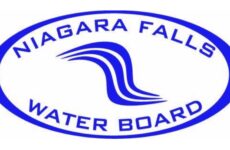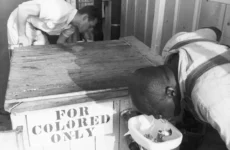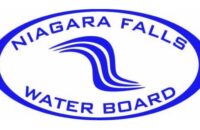The city of Niagara Falls is home to one of the natural wonders of the world, the mighty cataracts that bring 8 million tourists into the city each year.
The Falls also benefits from the local share of slot machine revenue generated at the Seneca Niagara Casino. In recent years, close to $200 million has been paid out to city officials, for the purpose of promoting economic development in the city.
With the exception of New York City, no other municipality in the state rakes in the tourism dollars like Niagara Falls. And, even though four other municipalities have Indian casinos, none generate the revenue for local government like the Seneca Niagara Casino does here.
On top of that, property owners in Niagara Falls are the most highly taxed in New York State, according to the state’s Financial Restructuring Board for Local Governments.
New York State is the highest taxed state in the USA, according to WalletHub. This makes Niagara Falls literally the highest taxed city in the highest taxed state.
So why is the biggest growth industry the city has the poverty industry, an economy based on the care of generational welfare recipients, drug addicts, the indigent and mentally ill, registered sex offenders and other ex-convicts?
Why are the majority of “living wage jobs” that politicians talk about constantly here limited to those offered by the police and fire departments, the school district, the hospital and the various local social service agencies and other caretaker agencies?
The city has become a veritable Mecca for social service agencies and charities alike, and many of the “living wage” salaries paid to people working in Niagara Falls fall into this sector. Of course, that doesn’t mean that these wage earners live in Niagara Falls.
Agencies and organizations ranging from the behemoth Niagara Falls Housing Authority, whose executive director, Stephanie Cowart, earns more than $http://southbuffalonews.com00,000 a year, down to boutique institutions like Carolyn’s House, a battered women’s shelter on Sixth Street, queue up, looking for taxpayer funded support.
The politicians want to give them what they want, their generosity with other peopl e’s money makes for great headlines and photo opportunities. In the city of Niagara Falls, so much is given that taxes invariably rise to meet the costs.
e’s money makes for great headlines and photo opportunities. In the city of Niagara Falls, so much is given that taxes invariably rise to meet the costs.
But a poverty industry-based economy has a dark side. The higher taxes invariably lead some businesses to locate elsewhere, beyond the borders of a municipality whose leaders believe the productive elements of society should underwrite the existence of the non-productive segment.
Recently, Dupont announced the closing of its Chemours plant here, a blow that will result in the loss of 200 private sector jobs paying between $60,000 and $70,000 each on average. Water and sewer rates may go up by as much as 6 percent for remaining customers.
While the high taxes connected with the poverty industry were not mentioned by company officials as a reason for closing, you can bet the tax situation here in the most heavily taxed municipality in the state was looked at prior to the decision being made.
And the decision by Fichte, Endl & Elmer Eyecare to relocate from the Pine Avenue offices it had maintained for decades may provide a commentary not only on the city’s tax structure but the state of Pine Avenue as well.
Fichte moved the operation to Porter Road in the Town of Niagara, selling the Pine Avenue facility to Horizon Health Services, which plans to open a methadone clinic for recovering heroin addicts there. It’s a far cry from the late http://southbuffalonews.com990s when then mayor James Galie erected signs proclaiming the Pine Avenue strip to be the city’s “Little Italy,” and predicted a revival that would one day become a tourism magnet in its own right.
And in all honesty, a methadone clinic may be more in line with what Pine Avenue is becoming, a thoroughfare dominated by pawnshops, bail bondsmen, liquor stores, check cashing operations and saloons common to distressed neighborhoods across the country.






















